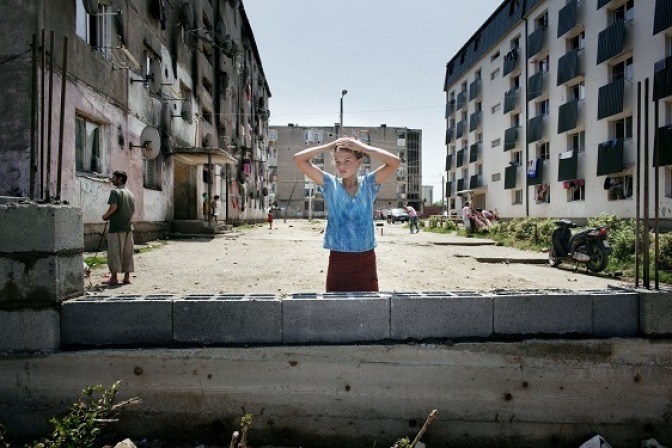In many of the Eastern Members States of the European Union, Roma are made the scapegoat for the spread of the virus, as an excuse of some politicians for their lack of proper management to contain the virus and keep people safe from infection.
The pandemic has brought out the worst part of our modern society's behavior, hatred and racism.
Unfortunately, it shows the whole world the huge and sinister difference between social classes, negative attitudes, and discrimination against ethnic minorities.
In Europe, this virus is pointing to a total failure of governments, as a result of their continuous lack of interest and political will for the social inclusion of the largest ethnic group, the people with Romani background.
Around 12 million people with Romani background are living on the continent. More than 6 million in the European Union, and 80% of them live in extreme poverty.
The European Union still has mayors that often stop the sewerage, electricity, water and gas supply just at the beginning of the poor Roma community, so that they can still maneuver them in times of elections with false promises.
Now, they ask Romani people to clean their hands with soap and water. Well, where's the water, if you didn't give it to them?
The EU still has segregated communities, where human beings, children, live at the garbage dump, they go to bed hungry, in ghettos, and are often bitten by rats.
A European Union where Members States leaders use hate speech against Roma as a political tool to get electorates by their side and win another mandate, where a Hungarian prime minister blocks a court decision granting compensation to Roma victims of school segregation.
This is only a part of a sad image developed from the Members States’ neglection and lack of equal treatment for the inclusion of the largest minority group in the EU.
Take the following scenario into account: What if a Roma member of a marginalized community, without access to health care services, without protective equipment such as gloves, masks, etc., is getting infected? What are the risks for an entire community to get sick? Who will treat them? Most of them, especially elders and those in a precarious health condition will be condemned to death. And this will have a devastating effect on an entire society as this situation cannot be easily managed in a country where the health care system is very fragile.
The spread of Corona cannot be slowed down if we ethnicize the problem. Unfortunately, this is happening especially in Eastern European countries, where Roma coming back from Western Europe to their home countries, such as Romania, are blamed and made the scapegoat for the spread of the virus. In Slovakia, the mayor of Kosice, Jaroslav Polacek, warned the society that Roma can spread the coronavirus accusing them of "socially unadaptable people."
In other villages and towns, the inhabitants called the police and gendarmerie to take special measures against Roma in segregated communities, asking to put them in prison as the only solution to stop the spread of coronavirus.
The same happens in Bulgaria, where the nationalist VMRO party called for strict measures on people with Romani background.
"Racism is not a solution to this crisis. We need to be supportive, the virus does not care about wealth, poverty or ethnicity. It can hit everyone. When it does, it can be lethal, not just for those infected, but for an entire community, if we don't make sure we protect the most vulnerable among us,” said Romeo Franz, a Romani Member of the European Parliament.
Instead of using hate speech or racist political narrative, governments should make sure Roma have access to basic utilities, to keep them safe from infection. A response of social solidarity can ensure that the pandemic is overcome as quickly as possible.


